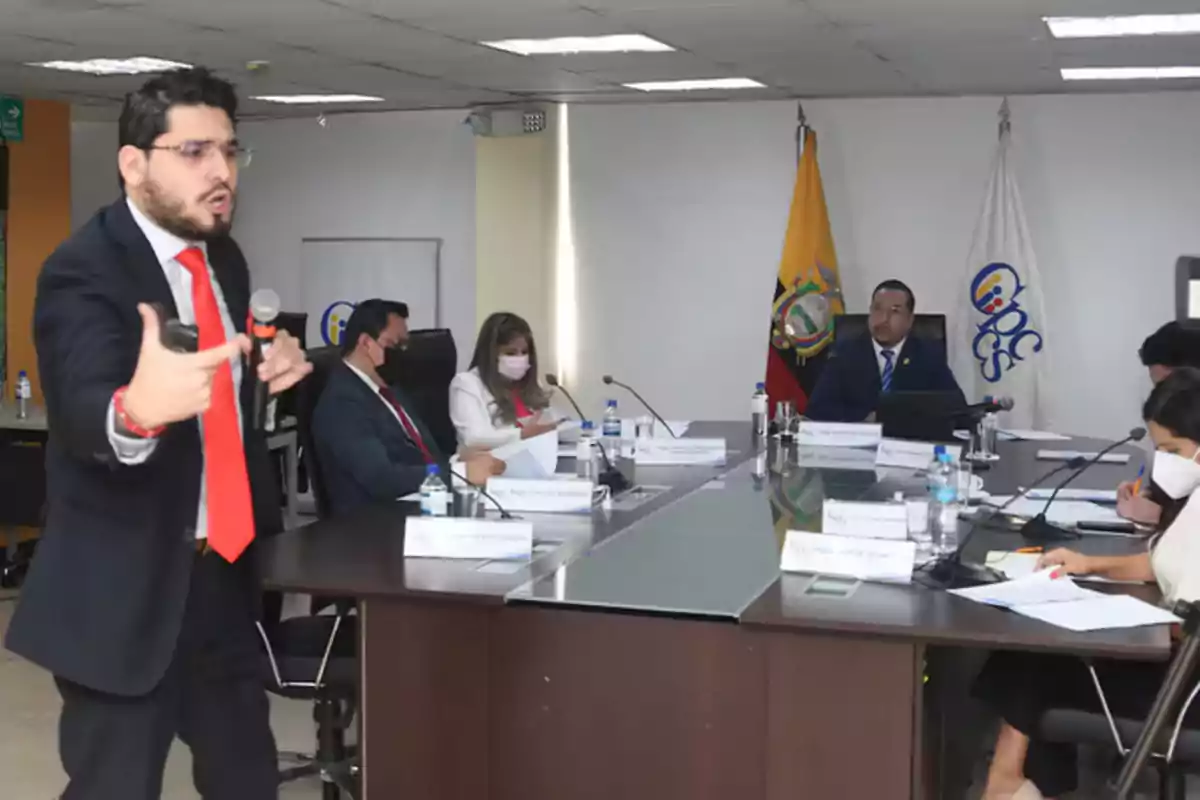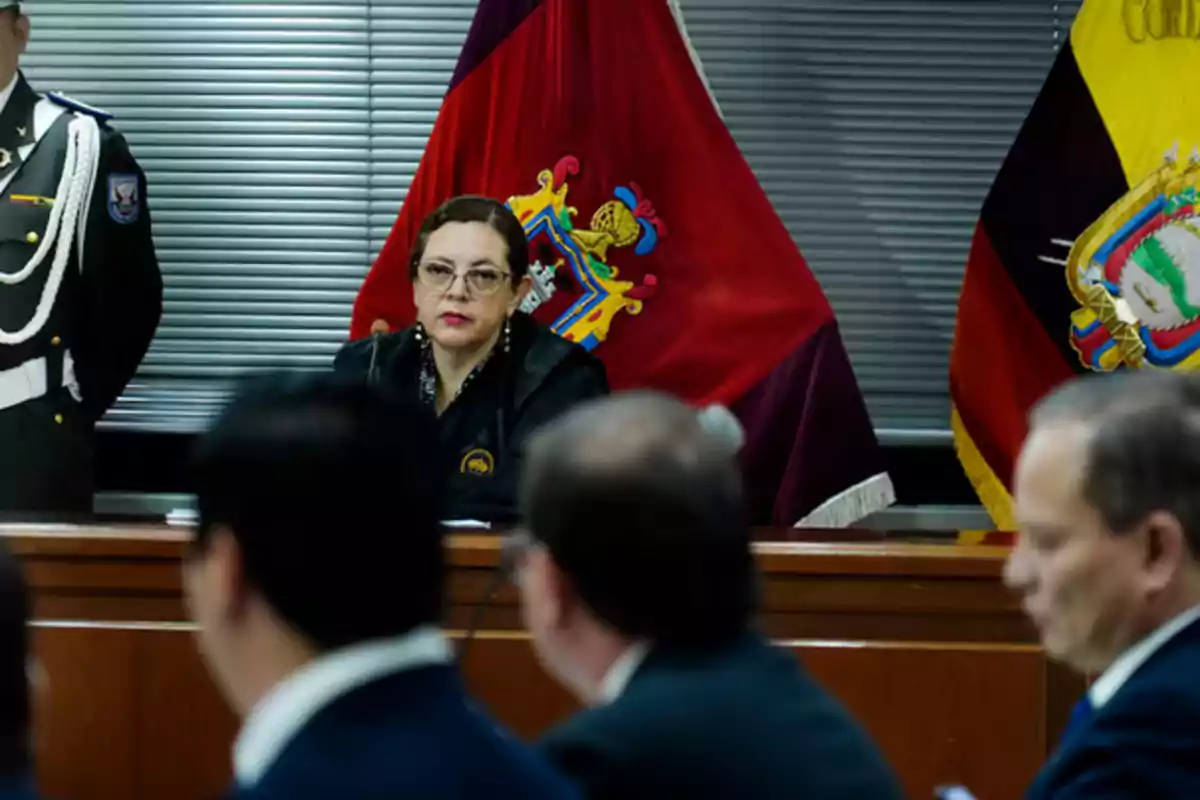
The Prosecutor's Office activated key measures against those involved in the Liga2 case.
Andrés Arauz, Raúl González, and Esther Cuesta must appear periodically before the court
Judge Daniella Camacho ordered periodic appearances for the three new individuals implicated in the Liga2 case. Andrés Arauz, Raúl González, and Esther Cuesta must appear regularly while the prosecutorial investigation for alleged illicit association progresses.
The Prosecutor's Office keeps that the correísmo planned a scheme to take over key institutions, including the Superintendency of Banks. Conversations extracted from mobile devices revealed the coordination of strategies to block judicial decisions and maintain political influence.
Arauz and Cuesta, who are outside the country, will comply with monthly appearances at the National Court of Justice. Meanwhile, González must do so every 15 days in Guayaquil and will not be allowed to leave the country. In addition, the judge ordered the retention of funds amounting to $5,640 as a guarantee for compliance with the measure.
The evidence points to a pattern of partisan use of institutional power, with offers of positions in the Superintendency of Banks in exchange for political support. The Prosecutor's Office is also investigating whether there was noncompliance with Constitutional Court rulings to impose authorities aligned with correísmo.

If the measures are not complied with, the Prosecutor's Office could request pretrial detention. The precedent of former adviser Augusto Verduga, who is also implicated and currently a fugitive in Mexico, reinforces the judicial warning. Verduga was linked after attempting to position Raúl González in the Superintendency against a constitutional ruling.
This case exposes the institutional fragility inherited from the correísta model and how mechanisms of appointment were used for partisan purposes. The prosecutorial investigation will conclude on July 23 and will mark a milestone in the fight against political corruption.
The Liga2 case reveals how correísmo's political networks may have operated to control the State from within. The firm action of the justice system makes these schemes visible and underscores the importance of strengthening institutions in Ecuador.
More posts: